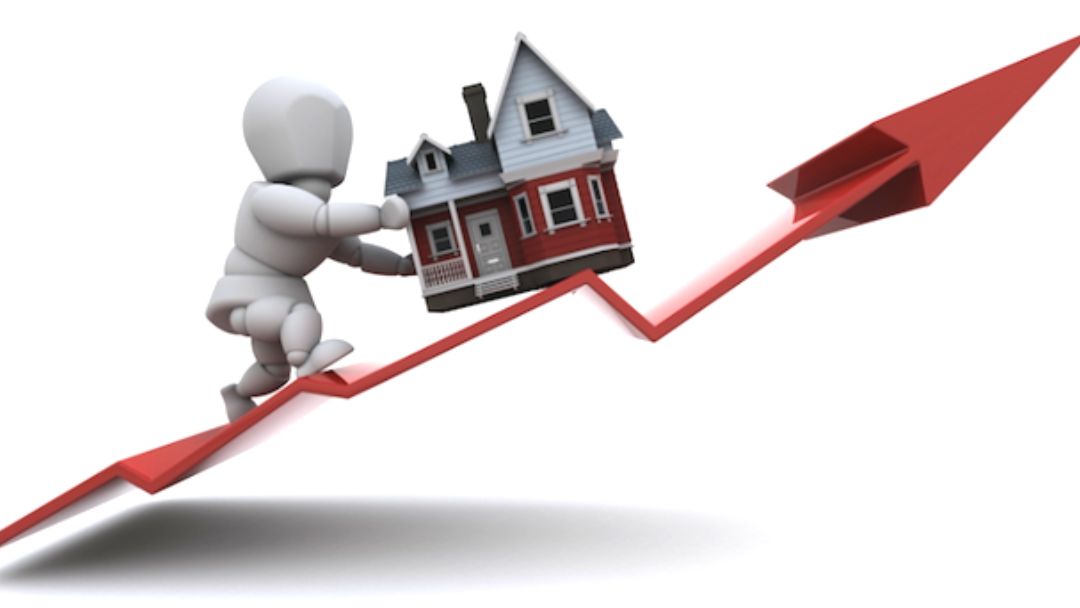The Bay Area real estate market continues to confound experts with high property prices which counters commonly held economic theory. Mortgage interest rates are at historic lows, buyer demand remains robust even in the face of widespread job losses, and prices for homes are at record high levels. So what gives? The basic supply and demand curve from microeconomic theory explains that as demand increases while supply remains constant (or declines), prices will go up.
So the question isn’t why high home prices are persisting. The question that has been nagging at me recently is why more people aren’t listing their homes on the market given historic high property prices? Questions like these make clear that economics is really the study of human behavior and how people make choices.
With the economics lesson out of the way, I have some theories about what is going on with the local property market as well as some guesses at what lies ahead.
FUD (Fear, Uncertainty, and Doubt)
We are experiencing global economic turmoil due to the coronavirus. This is leading to a large degree of uncertainty. Not knowing if you are still going to have a job tomorrow, or if you may become infected with a potentially deadly virus creates fear. It is very difficult to make good decisions when in a state of stress. Selling a home is obviously a very big decision that can have life changing impacts. Listing a property should be done with thoughtful consideration.
Preparing a home for sale, determining where to move, considering the relocation impacts on your career and family, and identifying the best real estate agent to represent you is a lot of work. I believe that all this FUD is causing a lot of indecision regarding selling property. This is counter to the fundamental economics that dictate more supply should be reaching the market to satisfy demand and push prices back down toward equilibrium.
Where To Go?
Tied closely to the prior observation about FUD is the concern on the part of prospective sellers as to where to relocate. Do you repurchase in the local market? Do you consider renting? Are you contemplating moving out of the area to a less expensive location? These are all important considerations that can have long-term impacts on your career and family.
The ability to anticipate the impacts of these choices can be impaired in the context of uncertainty. It can feel easier to just stay put and wait until some of the metaphorical smoke clears. However, letting inertia take over can lead to missed opportunities. Working with a real estate expert to help you evaluate the options and point out the benefits and disadvantages of various approaches can help you gain perspective and remove some of the uncertainty.
Investment Property Tax Considerations
Selling an investment property has different tax considerations than selling your primary residence. Any capital gains from investment properties need to be quickly reinvested to avoid an additional tax burden. Known as a 1031 Exchange, this IRS tax code allows you to repurchase a similar property without paying capital gains taxes. There are, however, strict rules on the timing for reinvestment.
You have to identify the new property to purchase within 45 days, and make the purchase within 180 days. This can go by very quickly, particularly in the context of shelter-in-place rules. Having an agent who is experienced with investment properties and the associated tax implications can literally save you thousands of dollars in taxes. The complexities and timing requirements for these types of property transactions are possibly dampening short interest for investors looking to sell.
The Herd
Humans are social creatures and we evolved in tribal culture. The innate instinct to fit in with the tribe for protection has powerful impacts on our behavior. Social norms guide our actions. When we look around and see relatively few properties on the market our instinct is to hold back to fit into the perceived social milieu. Most people don’t want to stand out or risk being seen as making bad decisions. It’s often safer to sit back and wait for someone to jump first before making a move.
I believe this herd mentality is part of the reason that we are seeing so little property inventory listed on the market. Potential sellers may be concerned that the market hasn’t yet hit its peak and could be leaving money on the table if they sell now. No one has a crystal ball, but trying to time the market is fraught with risk. It’s nearly always better to take your winnings and go home rather than wait to reach the peak.
What’s Ahead?
No one can be sure of what is to come, but there are a few dynamics that are likely given available economic data and historical trends.
- Selling
People will not remain on the sidelines forever. There will be a gradual increase in properties listed as sellers begin to recognize the opportunity in front of them. In addition, some families will unfortunately face economic hardships that will force them to downsize, adding to the momentum of listings. - Foreclosures
Some people will struggle to remain in their homes in spite of job losses and this will lead to some number of foreclosures, adding to the available inventory. I actually think the foreclosure rate in the Bay Area will likely be quite modest compared with other parts of the country, but it won’t be unheard of as federal assistance dries up. - Mortgage interest rates?
The historic spread between the 10-year treasury bond and mortgage interest rates has been between 1.5 and 2.0 percentage points. Right now we’re seeing a spread of closer to 2.5 points. This is largely due to the backlog of mortgage and refinance requests to lenders. But as the backlog clears we are likely to see slightly reduced mortgage interest rates, further driving demand for real estate financing. That said, Freddie Mac and Fannie Mae have just implemented new mortgage fees to account for increased risk which could mitigate the low rates.
Conclusion
So what does all of this mean to you? It depends on your situation of course, but I think there are some key takeaways that nearly everyone can take into consideration. More listings are coming. It may be months, not weeks before there will be more opportunities for buyers, but with ongoing low interest rates, demand in the Bay Area will remain high. Also, with increased remote work opportunities fewer people will want to stay in dense urban areas, creating additional demand for suburban or rural properties with home offices and larger yards.
As we move into 2021 and an inevitable vaccine for coronavirus is distributed, we hope to see renewed economic growth and stability. The economy of the Bay Area has remained relatively strong compared with many other parts of the country and the combination of great weather, access to abundant outdoor activities, and ongoing job opportunities will make our region an attractive place to live for the foreseeable future.
Regardless of all of these factors and forecasts, the best time to begin earning equity and building wealth is today. If you are looking to purchase a home, there has never been financing available at such a low rate, and it’s impossible to know how long that will continue. If you’re considering selling to take advantage of historic high property prices or because you want to cash in on your nest egg to downsize, buyers are waiting and you’re likely to have a positive outcome if you work with the best agent.
As always if there is anything I can do to help you or answer questions, please reach out for a complimentary consultation. Sometimes just talking with someone can clarify your thinking, release stress, and help you build a roadmap for the future.




